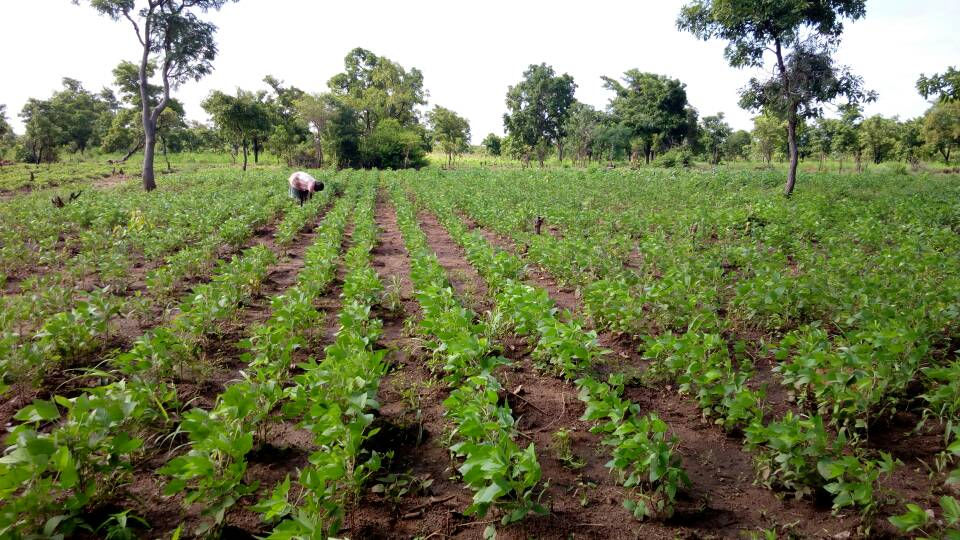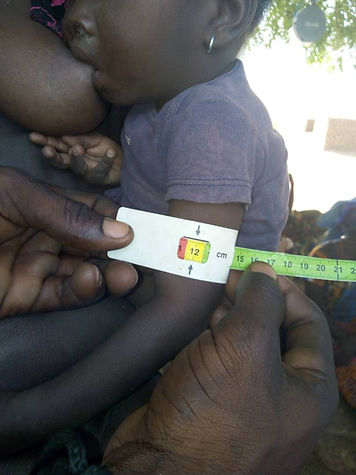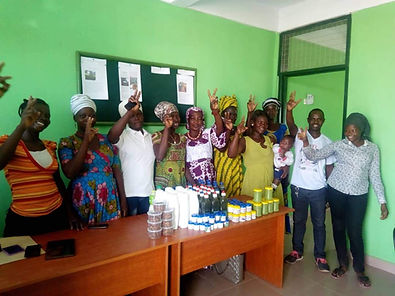
Our Approach to Development Work
ISRD is inspired by two main development philosophies; Self Help Approach and Market Based Models.
Strategies
Our work is centered around four implementation strategies;
1. Community Mobilization and Sensitization
2. Demonstrations and Community-Based Learning
3. Use of Information Technology for dissemination of innovations.
4. Collaborations and Partnerships
Projects
ISRD has designed, redefined and developed models to assists smallholder farmers, organizations and individuals with relevant knowledge and skills to address development challenges.
To date, ISRD has successfully implemented a number of small projects, stand alone activities and currently implementing some projects.
Providing Innovations for Market Effectiveness (PrIME)
This is an initiative that provides technical and financial supports to smallholder farmers in rural communities in order to strengthen their capacity to go into cultivation as well as linking them to accessible markets for their produce. The strategy is based on a demand-driven and interest-based approaches which presents a level playground for all smallholder farmers in rural communities to loosen the bottlenecks that are seen as a bane to production. The methodology is that, smallholder farmers identified in communities are mobilized into groups of manageable sizes, trained for a period of four weeks (1 month) to understand the concept, commit to the terms & conditions (otherwise, Standard Operating Procedures) by endorsing an agreement based on a memorandum of understanding before finally, a guaranteed input credit is provided as support to facilitate crop production. These groups are also given series of training including agronomic trainings, crop budgeting, records keeping and group management.
After harvest, farmers are linked to interested processors, identified by ISRD, for sale of their produce. Processors are assured of quality grains and reliable suppliers who deliver by meeting the required standards expected. This forms the basis for cultivation by farmers since priority will be given to quality as the ultimate determinant for marketing.
ISRD currently work with over 3000 farmers on three crop value chains; Maize, Groudnuts and Soya beans

Enhancing community-led Financial security for Development (E – FinD)
The E-FIND initiative is a financial literacy methodology that seeks to train rural communities to use simple models such as the VSLA (Village Savings and Loans Association) in securing financial sustainability. This incorporates succinct community-based financial strategy with the focus of equipping rural people who do not have access to formal financial institutions to benefit from a financial operation system that guarantees access to loan and a flexible repayment system in their respective rural settings.
We assist community people to form groups of 15-30 members and given a tools kit (VSLA box) that enables them to save and borrow monies with flexible terms and low interest rates. This process goes through a cycle of 9-12 months after which the total savings are shared among respective members on the basis of their savings and interest accrued from the loans taken. Additionally, smallholder farmers are trained on how to determine their production costs in order to calculate their returns on investment after harvesting and sale of the farm produce. This serves as capacity building on how smallholder farmers can prudently handle all costs incurred before, during and after production as well as households financial management.






.jpeg)
AgriCaller
ISRD currently implements a self-financed e-extension model where farmer groups are provided with customized extension information via voice messaging in their local dialects. The AgriCaller initiative has an objective to improve on extension information delivery for a larger audience of farmers in a timely manner through virtual contact. The project reaches out to 900 women farmers put into 30 groups in 12 communities in the Wa West District of the Upper West Region. The project trains Lead Farmers on Best Applicable Agronomic Practices and soya and groundnuts cultivation. Then follow-up messages are sent out to farmers on next on-farm activities to do and the best recommended ways to do them. Personal visits are then scheduled at convenient times to visit farmer fields to verify how activities have been carried out. Information on sustainable agricultural practices such as non-burning of crop residues and woodlot natural regeneration techniques. The project also employs Monitoring and Evaluation strategy that use mobile data collection application which ensures real time access to field data which includes GPS tagging and field pictures.
The essence of these initiatives is to support the growth and development of the agricultural sector in the region through the indispensable role of smallholder farmers in rural communities.
Community Action for Girl Education (CAGE).
The CAGE initiative works with communities in the Wa West District to identify socio-economic, cultural and Gender-based challenges militating against Girl Child Education and develop innovative programs to address such challenges, using participatory approaches. The initiative has the following objectives;
-
Improve the retention of girls in schools up to ,at least, completion of Junior High School (JHS).
-
Promote Girl-Friendly School Environment for effective Teaching & Learning, especially, in schools without female teachers.
-
Improve the Academic Performance of Girls in selected Junior High Schools.
Under CAGE, ISRD has been engaged in the organization of Community Durbars to sensitize community members on need for girl child education and the urgency for Community Action to safeguard the education of girls.
ISRD also facilitate the formation of Girls Clubs to create a platform for peer-education and learning on the rights of girls and how to protect same. The Girls Clubs are also avenues for girls to develop self confidence and build leadership skills. CAGE also organizes regular mentoring sessions for girls in selected school, using successful young ladies from the District as mentors. Additionally, ISRD promotes ICT education among girls in beneficiaries through the training of ICT teachers and the provision of Gender-sensitive ICT materials for education (including posters, sensitization cards, markers and marker boards).
So far, the Project was started lat 2018, has recorded some Most Significant Change Stories (MSCs) that indicates its effectiveness and potential for successful up-scaling. Under CAGE, ISRD conducted a study into the Academic Performance of students in the BECE in Chogsia Community, in collaboration with the Old Students Association. Preliminary findings from the study revealed that Girls perform better when exposed to ICT and ICT materials. The results also showed that girls felt more confident and motivated to learn, when there are female teachers in the school. The provision of an ICT Centre and a Library were considered the two most important interventions the community needs to improve Academic performance of students, especially girls. A draft report is available pending submission of a final report for validation with stakeholders.
Nutrition Schools for Healthy Children- Pollination Project
BDS Training on Green Businesses

